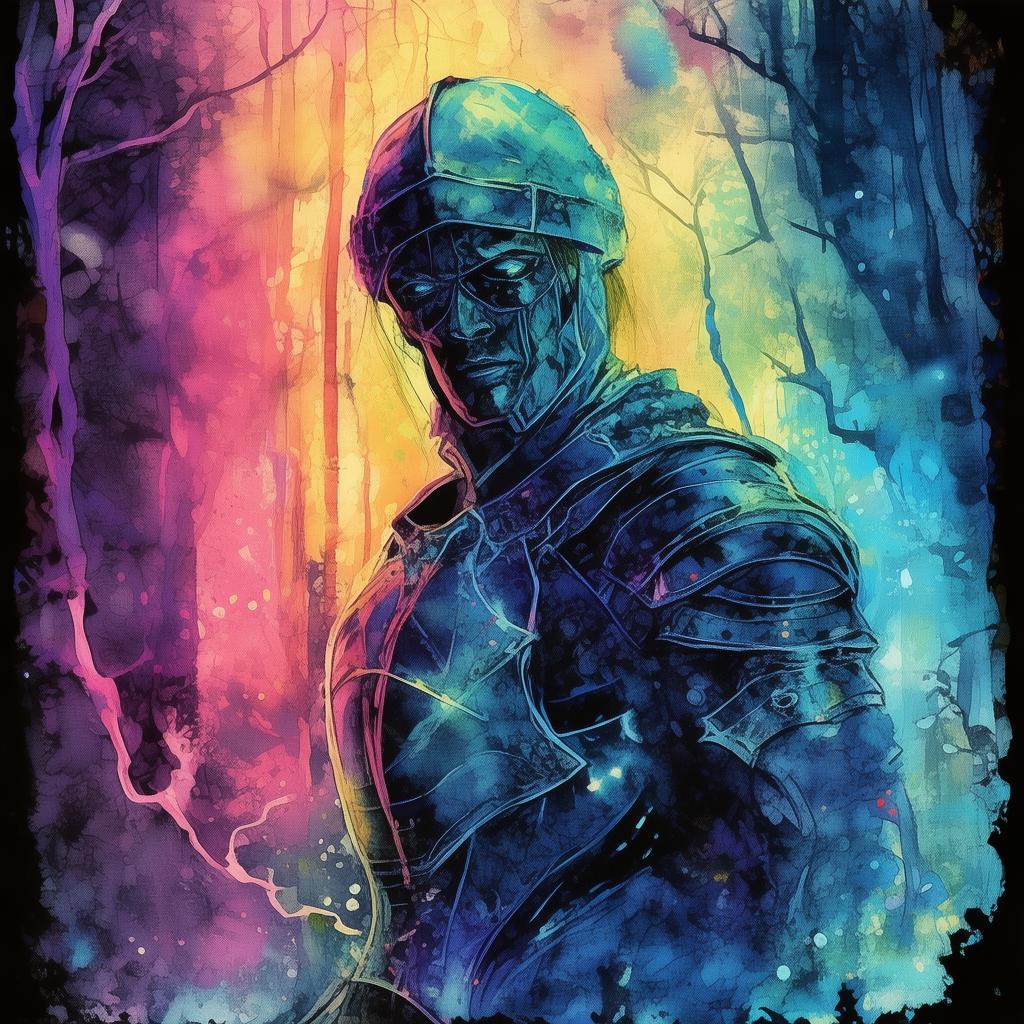The Dragon's Lament: The Fall of the Celestial Emperor
In the vast expanse of the heavens, where the celestial bodies danced in eternal harmony, there was a realm known as the Celestial Court. It was here that the Emperor Han Wu reigned, a dragon of unparalleled might and wisdom. His reign was one of peace and prosperity, with the stars and planets aligned under his watchful eye. The people of the heavens, both divine and mortal, sang his praises, for he was the embodiment of power and benevolence.
The Dragon's Lament begins with the tale of a prophecy that foretold the rise and fall of the celestial emperor. The prophecy spoke of a dragon who would one day ascend to the throne, but it also spoke of his fall, a fall that would bring darkness to the heavens. As the story unfolds, we delve into the life of Han Wu, from his ascension to his tragic downfall.

The story opens with a scene of celestial splendor, where Han Wu is crowned as the new emperor. The heavens themselves seemed to celebrate his ascension, with the stars twinkling brighter than ever before. His subjects were overjoyed, for they knew that with him at the helm, their lives would be filled with prosperity and happiness.
However, as the years passed, a shadow began to creep over the celestial realm. Han Wu, once a beacon of light, started to grow corrupt. His power became an obsession, and he began to demand more and more from his people. The stars that once danced in harmony began to wane, and the planets grew restless under his heavy rule.
One day, a wise old sage approached Han Wu, his eyes filled with sorrow. "Your Majesty," he said, "your reign has brought darkness to the heavens. The prophecy speaks of your fall, and it is near. You must change your ways, or face the consequences."
Han Wu, in his pride, dismissed the sage's words. "Prophecy is but a tool of the weak," he declared. "I am the emperor, and I shall do as I please."
As the days turned into months, the corruption of Han Wu grew worse. The celestial court was rife with greed and deceit, and the people of the heavens suffered under his oppressive rule. The sage, seeing no change in the emperor's heart, decided to take matters into his own hands.
One fateful night, the sage approached Han Wu in his throne room. "Your Majesty," he said, "you have brought darkness to the heavens. It is time for you to step down."
Han Wu, seething with anger, seized the sage by his robes. "You dare to challenge me? I am the emperor!"
Before he could react, the sage pulled out a small, ornate box. "This box contains the true power of the heavens," he said. "With it, you can undo the damage you have caused, but you must first humble yourself and ask for forgiveness."
Han Wu, now filled with fear, looked at the box. He knew that if he did not use it, the heavens would fall into chaos. With a heavy heart, he accepted the sage's offer and asked for forgiveness.
The sage opened the box, revealing a glowing, celestial orb. As he handed it to Han Wu, a bright light enveloped the emperor. When the light faded, Han Wu was no longer the proud ruler of the heavens. He was a humble figure, his power diminished, but his heart was cleansed.
The sage then took the orb and placed it in the hands of the next in line for the throne, a young dragon named Yu. "You must be wise and just, Yu," the sage said. "The heavens depend on you."
Yu, with the celestial orb in hand, became the new emperor. He ruled with compassion and wisdom, and the heavens once again found peace and harmony. The Dragon's Lament tells the tale of Han Wu's fall and the rise of Yu, a story that serves as a reminder of the consequences of pride and the power of humility.
In the end, the heavens were saved, but the legacy of Han Wu's fall remained. The stars whispered his name, a name that would be etched into the annals of celestial history. And so, the Dragon's Lament continues to be told, a tale of tragedy, redemption, and the eternal dance of the celestial realm.
✨ Original Statement ✨
All articles published on this website (including but not limited to text, images, videos, and other content) are original or authorized for reposting and are protected by relevant laws. Without the explicit written permission of this website, no individual or organization may copy, modify, repost, or use the content for commercial purposes.
If you need to quote or cooperate, please contact this site for authorization. We reserve the right to pursue legal responsibility for any unauthorized use.
Hereby declared.









